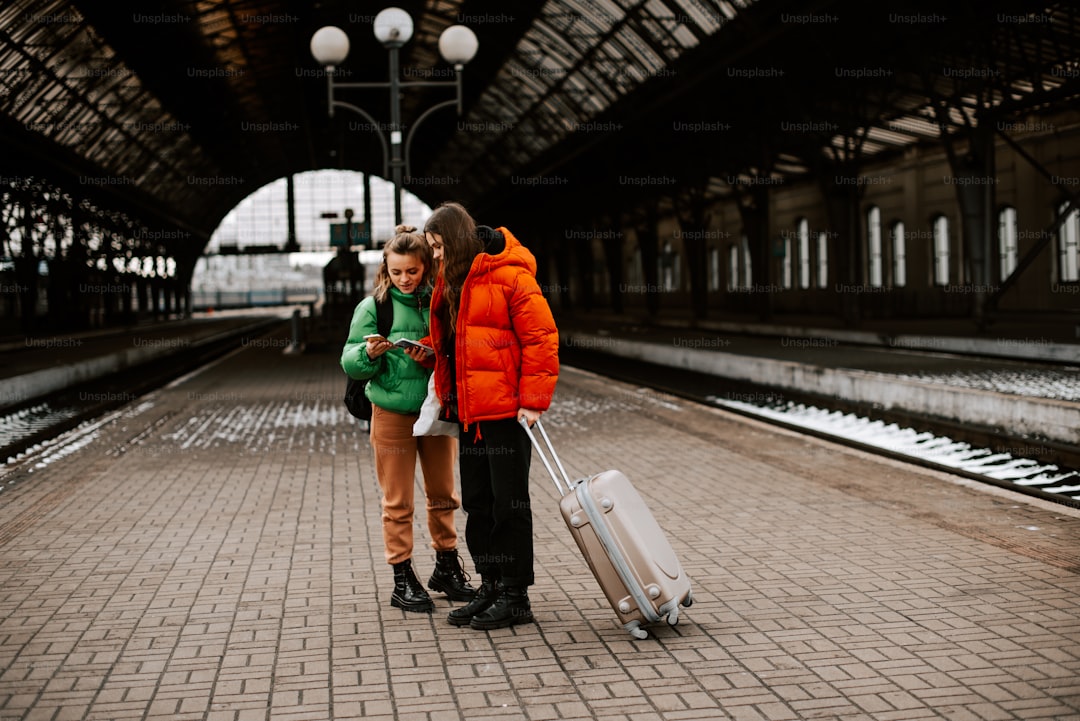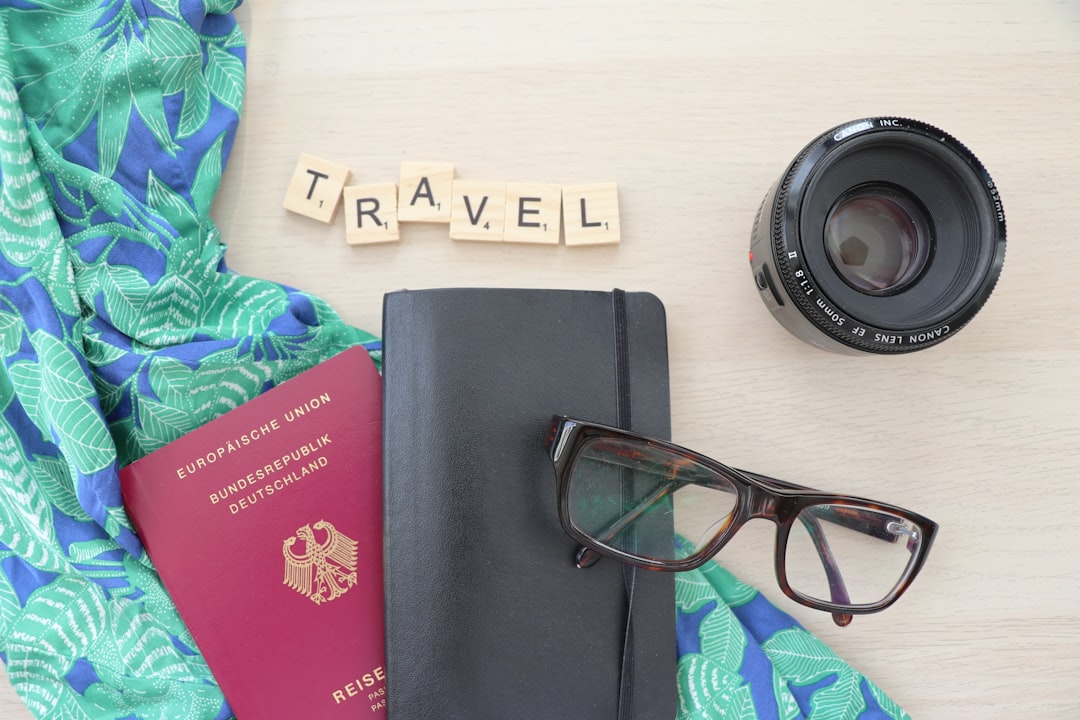How to Manage Money and Taxes on the Road

Overview
Living a location‑independent lifestyle offers freedom, adventure and the chance to explore new cultures. At the same time it creates a set of financial and tax challenges that most traditional workers never face. The goal of this guide is to give you a clear roadmap for managing money, staying compliant with tax laws and protecting yourself with the right insurance while you travel. By breaking the process into manageable steps you can focus on the experience rather than worrying about paperwork.
Setting Up a Financial Base
Choose a Home Base for Banking
Even if you never return to a single country for an extended period, having a “home” bank account simplifies many tasks. Look for banks that:
- Offer online account opening with minimal residency proof
- Support international wire transfers at low cost
- Provide multi‑currency accounts or easy currency conversion
- Have strong security features such as two‑factor authentication
Popular options for digital nomads include offshore‑friendly banks in Singapore, Estonia’s e‑Residency program, and fintech platforms like Wise, Revolut and N26. Open the account before you leave your home country to avoid delays caused by address verification.
Build an Emergency Fund
Travel can be unpredictable. Aim to keep three to six months of living expenses in a readily accessible account. Keep this fund in a stable currency such as USD or EUR and store it in a separate savings account to avoid accidental spending.
Separate Personal and Business Finances
If you earn freelance income, contract work or run an online business, create a dedicated business account. This separation makes bookkeeping easier, helps you claim deductions accurately and protects your personal assets if legal issues arise.
Banking on the Move
Use Digital‑First Banks
Traditional banks often charge high fees for foreign ATM withdrawals and currency conversion. Digital banks typically offer:
- Free or low‑cost international ATM withdrawals up to a set limit
- Real‑time exchange rates with minimal markup
- Easy mobile app access for monitoring balances
Set up at least two digital accounts in different jurisdictions. This redundancy protects you if one provider experiences an outage or blocks access due to suspicious activity.
Keep Multiple Payment Methods
Carry a mix of:
- A debit card linked to your primary account (preferably Visa or Mastercard)
- A prepaid travel card for budgeting and to limit exposure if a card is stolen
- A small amount of cash in the local currency for places that do not accept cards
Store cards in separate locations (wallet, luggage, secure travel pouch) to reduce the risk of total loss.
Manage ATM Fees
Research the ATM fee structures of your banks before you travel. Some banks reimburse foreign ATM fees up to a monthly limit. If you need cash frequently, consider using a card that offers fee‑free withdrawals worldwide.
Currency Management
Choose a Primary Currency
Select a stable currency for most of your income and savings, such as USD, EUR or GBP. This reduces exposure to volatile exchange rates and simplifies tax reporting.
Convert Strategically
Avoid converting large sums at airports or tourist hotspots where rates are poor. Use reputable online platforms that provide near‑mid‑market rates. Schedule conversions when the market is favorable or when you anticipate a long stay in a country with a weak currency.
Use Currency‑Holding Features
Some fintech apps let you hold balances in multiple currencies. Keep a small amount of each local currency you plan to visit for immediate expenses. Transfer funds between balances as needed to avoid unnecessary conversion fees.
Budgeting While Traveling
Create a Flexible Budget
Start with a baseline budget based on your typical daily expenses: accommodation, food, transport, insurance and entertainment. Add a buffer of 10‑15 percent for unexpected costs. Adjust the budget each month based on the cost of living in the countries you visit.
Track Spending in Real Time
Use budgeting apps that sync across devices and support multiple currencies. Record every transaction as soon as possible. This habit helps you spot overspending early and provides accurate data for tax deductions later.
Automate Savings
Set up automatic transfers from your primary account to a separate “travel savings” account each month. Even a modest amount adds up and ensures you always have a financial cushion.
Understanding Residency and Tax Home
Differentiate Physical Presence from Tax Residency
Many countries determine tax residency based on the number of days you spend within their borders. Others use a “center of vital interests” test that looks at where your family, economic ties and social life are rooted. Understanding the rules of each jurisdiction you visit is essential to avoid double taxation.
Establish a Tax Home
Your tax home is the place you consider your main base for tax purposes. It does not have to be the country where you spend the most days, but it should be the location where you maintain a permanent address, a driver’s license, a voter registration or other ties. Declaring a tax home helps you claim deductions for travel expenses that are directly related to your work.
Use the 183‑Day Rule Wisely
The most common threshold for tax residency is 183 days in a calendar year. If you plan to stay longer than this in a single country, research that nation’s specific filing requirements. In some cases you can apply for a “non‑resident” status if you can prove that your primary economic interests remain elsewhere.
Choosing the Right Tax Software
Look for Multi‑Country Support
Nomadic freelancers often earn income from several sources and jurisdictions. Select a tax platform that can handle foreign earned income exclusion, tax treaties and multiple tax forms. Popular options include:
- TurboTax (US focused but offers international forms)
- TaxAct (simple for basic filings)
- Taxfyle (connects you with a CPA)
- Global tax specialists like Taxumo or Taxback.com for non‑US residents
Automate Data Import
Choose software that can pull transaction data directly from your bank and payment processors (PayPal, Stripe, TransferWise). This reduces manual entry errors and speeds up the preparation of Schedule C, Form 1040‑NR, or equivalent local forms.
Keep Records for At Least Seven Years
Tax authorities may audit returns up to six years after filing. Store digital copies of all receipts, invoices, bank statements and mileage logs in a secure cloud folder. Use descriptive file names and organize them by year and category.
Filing Requirements for Digital Nomads
United States Citizens and Residents
- Foreign Earned Income Exclusion (FEIE) – If you meet the bona fide residence test or the physical presence test, you can exclude up to $120,000 (adjusted annually) of foreign earned income.
- Foreign Tax Credit (FTC) – Use Form 1116 to claim credits for taxes paid to other countries, reducing your US liability.
- FinCEN Form 114 (FBAR) – Required if the aggregate value of foreign financial accounts exceeds $10,000 at any point during the year.
- Form 8938 (FATCA) – Required for certain high‑value foreign assets.
Non‑US Citizens Working Remotely
Many countries have tax treaties that prevent double taxation. Identify the treaty between your home country and the nation where you are physically present. File the appropriate resident or non‑resident return, and claim treaty benefits where applicable.
Self‑Employed vs. Employee
Self‑employed individuals must file quarterly estimated tax payments (Form 1040‑ES in the US) to avoid penalties. Employees typically have taxes withheld by the employer, but you may still need to file a return to claim treaty benefits or the FEIE.
Deductions and Credits Specific to Nomads
Home Office Deduction
If you have a dedicated space for work, you can claim a portion of rent, utilities and internet costs. The simplified deduction (e.g., $5 per square foot up to 300 square feet in the US) reduces paperwork, while the regular method requires detailed expense tracking.
Travel Expenses
When travel is directly related to your business, you can deduct:
- Airfare, train tickets, ferry rides
- Accommodation costs (excluding personal vacation days)
- Meals at 50 percent of the cost
- Local transportation such as taxis, rideshares, car rentals
Maintain a log that notes the purpose of each trip, dates, destinations and the business activity performed.
Equipment and Software
Laptops, cameras, phone accessories, cloud storage subscriptions and productivity software are fully deductible if used primarily for work. Depreciate high‑value items over their useful life unless you elect Section 179 expensing (US) to write off the full cost in the first year.
Health Insurance Premiums
Self‑employed individuals can deduct health insurance premiums for themselves, their spouse and dependents. This deduction is taken “above the line,” reducing adjusted gross income.
Working With Professionals
When to Hire a CPA or Tax Advisor
- You earn income in more than two tax jurisdictions
- You own a corporation or LLC registered abroad
- You have significant capital gains, rental income or crypto transactions
- You are unsure about treaty benefits or residency status
Choose an advisor with experience in international tax compliance for digital nomads. Many professionals now offer remote consultations via video call and secure document portals.
How to Vet a Tax Professional
- Verify credentials (CPA, EA, CTA) and any specializations in expatriate tax
- Ask for references from other nomads or remote workers
- Review their fee structure – flat fees are common for straightforward returns, while hourly rates apply to complex situations
- Ensure they use secure file‑sharing platforms to protect your personal data
Legal Considerations Beyond Taxes
Business Entity Choices
Forming an LLC, corporation or a sole proprietorship influences liability protection and tax treatment. An LLC in a jurisdiction with low filing fees (e.g., Wyoming, Delaware, Singapore) can shield personal assets while allowing pass‑through taxation. However, maintaining an LLC may require annual reports and registered agent fees.
Contracts and Invoicing
Draft clear contracts that specify payment terms, currency, jurisdiction for dispute resolution and intellectual property ownership. Use invoicing tools that support multiple currencies and automatically calculate VAT or GST where required.
Data Privacy
When you store financial documents in the cloud, ensure the provider complies with GDPR, CCPA or other relevant privacy regulations. Encrypt sensitive files before uploading them.
Integrating Health and Travel Insurance
Why Insurance Is Part of Financial Planning
Medical emergencies are one of the biggest financial risks for nomads. A serious illness can quickly deplete your emergency fund and cause loss of income. Comprehensive insurance protects both health and finances.
Choosing the Right Policy
- Coverage Area – Ensure the policy covers every country you plan to visit, including any “high‑risk” destinations.
- Medical Evacuation – Look for plans that include emergency evacuation and repatriation, which can cost tens of thousands of dollars.
- Pre‑Existing Conditions – Some providers waive exclusions after a waiting period; read the fine print.
- Deductibles and Limits – Higher deductibles lower premiums but increase out‑of‑pocket costs. Choose a level you can comfortably afford.
Popular insurers for nomads include SafetyWing, World Nomads, and IMG Global. Compare plans using an online aggregator to find the best balance of price and coverage.
Managing Claims on the Road
- Keep digital copies of all medical receipts, prescriptions and discharge summaries.
- Notify the insurer as soon as possible – many require a 24‑hour notice for evacuation.
- Use the insurer’s mobile app (if available) to upload documents and track claim status.
Coordinating Insurance with Taxes
Premiums for qualified health insurance are tax‑deductible for self‑employed individuals. Keep a separate folder for insurance invoices and receipts to simplify the deduction process.
Protecting Assets While Traveling
Secure Your Devices
- Install reputable password managers and enable two‑factor authentication for all financial accounts.
- Use a VPN when accessing public Wi‑Fi to encrypt traffic.
- Back up important documents to an encrypted cloud service and a local encrypted drive.
Travel Safety Practices
- Store cash and cards in a hidden travel pouch rather than a front‑pocket wallet.
- Avoid displaying expensive gadgets in crowded areas.
- Register with your home country’s embassy when traveling for extended periods; this can assist in emergencies and provide a point of contact.
Tools and Resources
| Category | Recommended Tools |
|---|---|
| Banking & Currency | Wise, Revolut, N26, TransferWise Borderless Account |
| Budgeting | YNAB, Mint, PocketGuard, Expense Tracker (Expensify) |
| Tax Filing | TurboTax, TaxAct, Taxfyle, Taxback.com |
| Invoicing | FreshBooks, Invoice Ninja, PayPal Invoicing |
| Insurance | SafetyWing, World Nomads, IMG Global, Cigna Global |
| Document Storage | Google Drive (encrypted), Dropbox Business, Sync.com |
| VPN | NordVPN, ExpressVPN, ProtonVPN |
| Legal Templates | Docracy, HelloSign, DocuSign |
A Practical Checklist
- Open a multi‑currency digital bank account before departure
- Set up a dedicated business account and separate personal savings
- Build an emergency fund covering three to six months of expenses
- Choose a primary tax home and maintain proof of ties (address, driver’s license)
- Register for any required tax identification numbers in the countries you will stay long‑term
- Install budgeting and expense‑tracking apps on all devices
- Purchase a comprehensive health and travel insurance policy covering all destinations
- Keep copies of all receipts, invoices and insurance documents in an encrypted folder
- Schedule quarterly estimated tax payments if you are self‑employed
- Review and adjust your budget each month based on actual spending and exchange rates
Final Thoughts
Managing money and taxes on the road is a continuous learning process. The key is to build a solid financial foundation before you set out, stay disciplined with tracking and record‑keeping, and leverage technology to automate as much as possible. By following the steps outlined in this guide you can travel with confidence, knowing that your finances are organized, your tax obligations are met and your health is protected. Embrace the freedom of the nomadic lifestyle while keeping your financial health in top shape – the world is yours to explore.
Random Posts

Minimalist Nomad Living Sustainable Travel with Light Packing
Travel light, think small: Minimalist nomad living frees mind, cuts waste and costs, and turns every journey into a sustainable adventure.
3 weeks ago

Unlocking the Secrets of Digital Entrepreneurship on the Go
Learn how to turn freedom into a competitive edge, master the mobile mindset, and launch a scalable digital business from anywhere, whether a beach café or a mountain cabin.
1 month ago

Simple Payment Tools for the Global Freelancer
Learn how freelancers can streamline global earnings with simple tools to receive, hold, and spend dollars, euros and crypto without multiple banks, high fees or tax headaches.
2 weeks ago

Mastering Light Travel Without Sacrificing Comfort
Learn how to travel light while keeping the comforts that boost productivity, health and happiness. Discover minimalist mindsets, multipurpose gear and sustainable packing tricks that fit in any overhead bin without compromise.
2 months ago

Navigating Digital Nomad Permits A Step by Step Travel Handbook
Learn how to secure a digital nomad permit from start to finish with this step by step travel handbook, packed with practical tips, common pitfalls, and real world examples to keep you compliant abroad.
1 month ago
Latest Posts

Essential Software Every Remote Professional Should Use
Master remote work with essential tools: instant messaging like Slack, high definition video calls such as Zoom, and asynchronous voice apps. Streamline communication, stay connected and boost productivity.
1 day ago

Mastering Remote Work Productivity for Digital Nomads and Freelancers
Learn proven habits, tools, and tactics that help digital nomads and freelancers stay focused, deliver quality work, and maintain a sustainable lifestyle while traveling the world.
1 day ago

Tech‑Friendly European Towns Perfect for Remote Living
Discover Europe’s best small towns where fast internet, affordable living and vibrant tech communities let you work remotely while soaking up historic charm, lakeside views or mountain air.
1 day ago